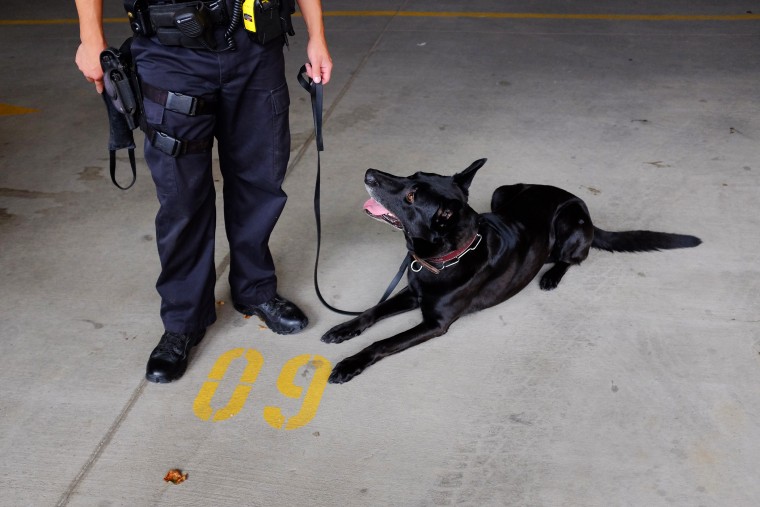Cops can't continue to hold a suspect without probable cause even for the few minutes they might need to wait for a drug-sniffing dog to show up, the Supreme Court said Tuesday.
Justice Ruth Bader Ginsburg wrote for the 6-3 majority that if a traffic stop is otherwise completed, holding on to the suspect any longer violates the constitutional protection against unreasonable searches and seizures.
RELATED: New study rebuts John Roberts on Voting Rights Act
The case, Rodriguez v. United States, involves the valid traffic stop of Dennys Rodriguez after he swerved over a highway shoulder line in Valley, Nebraska, in March 2012. Once Officer Morgan Struble had completed writing a warning, he then kept Rodriguez by the side of the road for seven or eight minutes waiting for the dog to show up and sniff the car for possible drugs.
The dog found meth, and Rodriguez was indicted and convicted. But Ginsburg wrote that Struble didn't have probable cause to search the vehicle, and that by dallying long enough for the dog to arrive and provide probable case, he violated the Constitution.
Justices Clarence Thomas, Anthony Kennedy and Samuel Alito dissented on the grounds that such a brief stop "is hardly out of the ordinary for a traffic stop by a single officer of a vehicle containing multiple occupants even when no dog sniff is involved."
In an additional dissent, Alito warned that officers would quickly figure out a way to slow the process of checking a driver's license and registration and writing up a ticket to give the K-9 unit time to arrive.
"I would love to be the proverbial fly on the wall when police instructors teach this rule to officers who make traffic stops," Alito wrote.
This article originally appeared on NBCNews.com.
